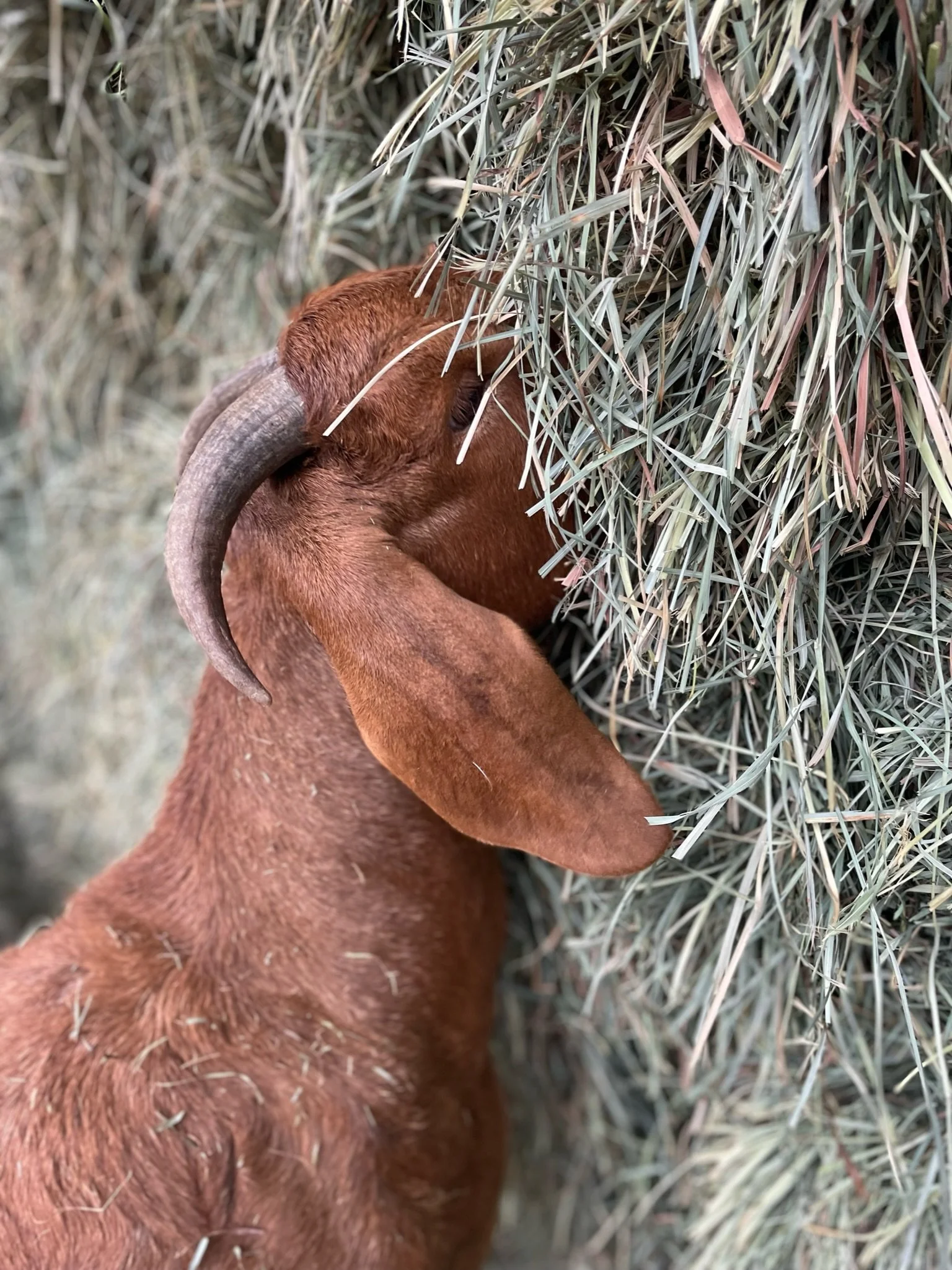Goats make such loving, entertaining and fun barnyard pets. They are easy keepers but do require knowledgeable care. Below you will find information for feeding your companion goats. If you have any questions or would like more specialized details, please contact us.
Feed
Contrary to popular belief, goats are actually very picky eaters and have complex digestive systems. Wethers (neutered males) have different dietary needs than does (females). Proper feeding is of utmost importance as feeding errors account for a large percentage of goat disease and death.
Wethers: We recommend good quality orchard grass hay. If you feed a mixed hay of orchard grass and alfalfa, alfalfa should not exceed 10% as alfalfa is thought to contribute to the potential for urinary calculi (blocking). Grain is also thought to be a major contributor to urinary calculi so we recommend that wethers not receive any grain, goat chow, or treats with grain products in them. This includes bread, crackers, etc.
Does: We recommend good quality orchard grass hay or a 50/50 mix of orchard grass and alfalfa. Alfalfa is not a health concern for does but we do not recommend a 100% alfalfa diet.
Note: If you are located in Western Washington, we strongly recommend Eastern Washington hay. Hay grown locally in Western WA does not provide the correct nutrients necessary for goats.
Timothy hay is also an option for both wethers and does. However, in our experience, it tends to have more stems and we see more hay waste when feeding timothy hay.
In winter months, goats should always have hay available to them in their shelter. Even if there is lots of browse left in their pasture, winter browse does not contain enough nutrients to sustain goats for the long winter months. Goats tend to avoid leaving their shelter during rainy weather so it’s important that they have access to hay where they will likely be spending most of their time. On cold nights they will munch on their hay throughout the night and generate their own heat to stay warm.
Salt is another important aspect to a goat’s diet, especially for wethers (neutered males). Loose mineralized salt is preferable over a traditional salt block and should be always be available to the goats. Offering both is a great option as well. We also recommend that goats have access to baking soda which can help aid digestion.
BROWSE
Goats are natural browsers and their ideal home has a pasture with a variety of grass, woody plants and weeds. Blackberry, salmonberry as well as alder, fir and maple trees are some of their favorites.
CAUTION: It is very important to understand the plants that are in your goats pasture and along its outer fence line as there are many ornamental plants which are very poisonous to goats. In many cases, it can take only a few leaves, fresh or dry, to fatally poison a goat. Unfortunately, these ornamental plants taste good to goats so they do not have any innate sense that they are deadly toxic to them. See our Poisonous Plants page for more information.
WATER
Goats should always have easy access to fresh, clean water. Water consumption is especially critical for preventing urinary calculi in wethers. You want to encourage them to drink as much and as often as possible. The water source should be located in the shelter or just outside the shelter as goats generally won’t go out in inclement weather to get to it. During very cold and freezing weather, make sure the water isn’t frozen or very cold. Since goats don't like drinking very cold water, hammering a hole in the water bucket usually won’t do the trick. We recommend offering them warm water during freezing temperatures. We can tell you from experience, they love it! Tank heaters are a second best option, but there is nothing like a warm bucket of water on a cold morning!
